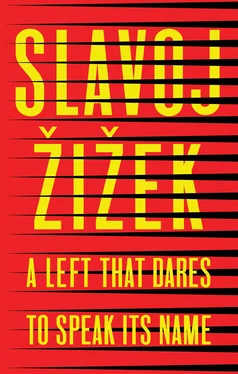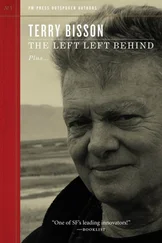Platonov’s heroes have different national and cultural backgrounds, but nonetheless they represent the same category: the proletariat. The idea behind “the international” and “non-Russian” faces is the idea of an average multinational proletariat that makes up one class. There is a significant explanation of the “non-Russianness” of the nomadic declassed people in Chevengur: “This is the true international proletariat: look – they’re not Russians, they’re not Armenians, they’re not Tartars – they’re not anything! I bring you live international.” It is precisely this multinational, and one can even say anticolonial, perspective that leads Platonov to the deconstruction of the dominant image of the white industrial working class that was so typical among the hard-liners in Proletkult…. He saw comrades the likes of whom he had never encountered before, people without any understanding or appearance of class and without revolutionary worth. These were instead some sort of nameless others who lived utterly without significance, without pride, and off to one side of the impending world-wide triumph. Even the age of these others was impossible to grasp, for all that could be made out was that they were poor, had bodies that grew unwillingly, and were foreign to all…. Platonov names his marginal declassed wanderers as “handmade people with an unknown designation,” “uncounted,” “mistak-able,” or “ prochie” – “others,” in the English translation of Robert Chandler. The Russian word prochie also refers to the “rest,” the “remainder.” Thus others is the rest of the people; they don’t belong to any class category existing in Marxist theory, because they are too poor and detached from normal social life…. The other, therefore, refers to someone who remains unaccounted for due to their amorphous and marginal status, but who is also part of a multiplicity which is not countable – part of a scattered and nomadic people, an anomaly of humanity, trapped between life and death, social and biological.
As the last quoted sentence makes clear, one has to avoid absolutely the elevation of prochie into an original site of productivity, its living presence oppressed by state representation. Prochie are not the Deleuzian multitude, they are, on the contrary, “living dead” caught in a non-productive passivity, basically deprived of the very will to be active. This is why we should take the risk of offering yet another translation of prochie: neighbors, with all the biblical weight of this term, those who are “others” and precisely as such always too close to us, no matter how far away they are. What makes them too close is that we lack a proper distance toward them because they don’t possess a clear identity, a place in society. The Christian motto “love your neighbor as yourself” acquires here its full weight: true social love is the love for the unaccountable less-than-nothings. However, this love can take different forms, and while Bolsheviks certainly loved them, wanted to help and redeem them, they followed the model of what Lacan called “university discourse”: prochie were their objet petit a, and they put all their effort into enlightening them, into changing them in modern subjects. The conflict that lies at the heart of Platonov’s work is thus not a conflict between enemies but a kind of lovers’ quarrel: Bolsheviks wanted to help the homeless others, to civilize them, and the others (depicted by Platonov) sincerely endorsed the communist ideals and fought for them, but everything went wrong: “Others in Platonov’s novels are always manipulated by ‘more conscious’ comrades, party leaders and intellectuals, but always unsuccessfully – it is almost impossible to integrate others into the collective body of the workers and to establish a normalized sociality based on the collectivization of labor and industrial production.”
However, Platonov subtly noted that this gap is not just the gap between self-conscious revolutionary force and the inertia of the crowds: while Bolsheviks focused on the operational aspect of social transformation, the core of the communist utopia was directly present in the dreams of Others who expected something radically new to arise. Communism was nowhere closer than in the immobility of the Others, in their resistance to get caught in concrete operative measures: “the special status of the poor and declassed elements, which unlike the organized workers, the party representatives and the intellectuals, are ready to stay where they are in order to do something radically new. In a way theirs is a life that remains in a state of waiting, and the question is what kind of politics will be established here.” Platonov’s famous inflections of language also located in this context of the tension between official Party language and the “primitive” speech of the others:
Platonov reflected the historical development of a new Soviet language made of revolutionary slogans, the vocabulary of Marxian political economy, the jargon of the Bolsheviks and party bureaucrats and its absorption by the illiterate peasants and workers. Historical research shows that for most of the post-revolutionary population, especially in the provinces, the language of the party was foreign and unintelligible, so that “they themselves perforce began to absorb the new vocabulary … often garbled its unfamiliar, bookish terms or reconfigured them as something more comprehensible, however absurd.” Thus, “deistvyushchaya armia” – “acting army” – became “devstvyushchaya armia” – “virginal army” – because “acting” and “virginity” sound identical in Russian; “militsioner” (“militiaman”) became “litsimer” (“hypocrite”).
Is this unique bastard mixture, with all its “senseless” mobilization of sound resemblances that can engender sparks of unexpected truth (in an oppressive regime, policemen are hypocrites; revolutionaries are supposed to act virginally, in a kind of innocence, freed of all egotist motives), not an exemplary case of what Lacan called lalangue, language traversed by all social and sexual antagonisms which distort it beyond its linguistic structure? This lalangue emerges through Platonov’s use of two (almost) symmetrically opposed devices:
[First,] he interprets an abstract ideological definition through the use of the common man, the person from the people, and secondly, he makes an inverse operation, when he overloads the simplest and clearest everyday words and expressions … with a set of ideological associations, to such an extent that these words become “so terribly improbable and confusing that, finally, they lose their initial meaning.”
What is the political implication of this loss of meaning? Although interpenetrating, the two levels – official Bolshevik speech and the everyday speech of the Others – remain forever antagonistic: the more the revolutionary activity tried to combine them, the more their antagonism becomes palpable. This failure is not empirical and contingent; the two levels simply belong to radically heterogeneous spaces. For this reason, one should also avoid the trap of celebrating the “undercurrent” of Soviet Marxism, the other line suppressed by official Soviet Marxism-Leninism, the line that rejected the controlling role “from above” of the Party and counted on the workers’ direct self-organization “from below” (as was the case with Bogdanov), indicating a hope for a different, less oppressive, development of the Soviet Union, in contrast to Lenin’s approach, which laid the foundations for Stalinism. True, this other line was a kind of “symptom” of official Leninist Marxism; it registered what was “repressed” from official Soviet ideology, but precisely as such it remained parasitical on official Marxism – i.e., it didn’t stand on its own. In short, the trap to be avoided here is to elevate the “poor life” of the Others into some kind of authentic communal life out of which an alternative to our ill-fated capitalist modernity can emerge. There is nothing “authentic” in the poor life of the Others; its function is purely negative, it registers (and even gives body to) the failure of social projects, including the communist one.
Читать дальше












